
ReligiosiTea
ReligiosiTea is where sacred storytelling meets critical inquiry—an exploration of how religion, spirituality, and health collide, converge, and co-heal.
Hosted by Adren, a doctoral student in Health Equity Sciences with a Master of Public Health and a background in anthropology, this podcast bridges the gap between lived experience and academic insight. With deep roots in qualitative research and a passion for testimony, Adren invites listeners into the spaces where belief systems meet bodies, where healing is both clinical and cosmic, and where the divine shows up in diagnosis, doubt, and deliverance.
The name ReligiosiTea is a portmanteau of religiosity—a measure of religious participation—and tea, a term from queer and AAVE dialects meaning truth, gossip, and revelation. This isn’t just a show about religion or health—it’s about the stories we whisper, the rituals we survive, and the questions we dare to ask when the stakes are spiritual and embodied.
Episodes vary in format—from interviews with people of diverse faiths and spiritual identities, to solo reflections, to commentary on the politics of faith and wellness. Whether you’re devout, deconstructing, or somewhere in between, ReligiosiTea offers a grounded, generous space for complexity, clarity, and connection.
ReligiosiTea
My Neighbor, the Philosopher
Use Left/Right to seek, Home/End to jump to start or end. Hold shift to jump forward or backward.
Spill your ReligiosiTea directly with the show host! Let us know your reactions, stories, and more!
What happens when traditional religious spaces no longer feel authentic? Marie's spiritual journey takes us from Catholic pews and saint cards to a deeply personal practice centered on finding the divine within herself.
The tension between our need for connection and our need for authenticity drives this conversation. Marie describes how her path evolved through Catholicism, Protestant Christianity, and monastery living before developing her current practice. With remarkable candor, she shares how institutional religion began feeling like "a skin that wasn't comfortable" despite her lifelong spiritual devotion.
Marie's spirituality transforms everyday moments into sacred experiences. Her morning begins with intentional wordlessness and a powerful self-love affirmation. Her evenings become devotional as she disconnects from technology, cares for her home, and bids goodnight to her children. Through these rituals, she cultivates what philosopher Gabor Maté describes as our two essential human needs: connection and authenticity.
Particularly fascinating is Marie's perspective on physical wellbeing as the foundation for spiritual health. "The body is the link to how I get to experience my spirituality," she explains. "How clear and healthy I am being with my body is how clear and healthy I can connect to the highest version of myself."
For anyone questioning their relationship with institutional religion or seeking more authentic spiritual connection, this conversation offers both validation and practical guidance. Marie's journey reminds us that spiritual growth often requires embracing competing truths and developing compassion for every version of ourselves.
Ready to explore your own spiritual path? Listen now and discover how finding your divine truth might transform your wellbeing in unexpected ways.
Follow me on Instagram and Threads: @ReligiosiTea
You can use the link at the top of the show notes or email me at religiositea@gmail.com to share your stories, thoughts, insights, reactions, and much more! I'm waiting for you to spill your ReligiosiTea!
We're spilling tea on religion and health, where intersections of faith and healing combine. On religiosity. As this podcast discusses religious beliefs, religious experiences, personal testimonies and mental and physical health, some of the content may be uncomfortable or triggering for some listeners. Content warnings will be provided in the description of each episode. Any personal journeys discussed on this podcast do not constitute health, medical or religious advice. We are simply trying to capture the lived experiences of real people who would like to share their own stories about religion and or health. Who would like to share their own stories about religion and or health? Hello, this is your host, adrian. Welcome to the next episode of Religiosity. Today I have the honor and privilege of talking to my friend and neighbor, marie. Can you share a little bit?
Speaker 2:about yourself. Hi, adrian, it's nice to be here. It's great to be here here. So yes, we've been neighbors for seven, eight years now and I love hearing about your work. I'm very interested in your work. Background in philosophy as a philosophy professor for many years and my own personal experience with religion could be something that we could have a conversation about.
Speaker 1:Awesome. Well, I'm really glad to have you here and I can't wait to get into your story. Okay, can you tell me about your current religious or spiritual beliefs or practices?
Speaker 2:So my current religion religious beliefs. It's part of why I wanted to be here was because I felt like it would be a good time to just kind of say it out loud, since it's always been a growing, evolving thing. So I guess to get to here, can I go through my past. Yeah.
Speaker 2:Okay, so I was. Since I could remember, I've always had a deep connection to the divine. I've always had a deep connection to the divine Five, six years old, sitting in a Catholic church, swinging my feet on the pews, knowing I was gonna be a priest, knowing in my heart I was gonna be a priest, to being 12, 13 years old, carrying Saint cards in my pocket like baseball cards. Just, I've always had a relationship with the divine, and so I started off as Catholic, and then life circumstances asked my faith to be bigger and different. And then I became evangelical Christian or Protestant Christian, I'm not exactly sure. And then life circumstances asked that my faith grow even bigger. And then I lived in a commune in the desert for five years in community, at a monastery, and life circumstances asked my faith to be different again. And so where I am today is I walk with divine within myself.
Speaker 1:Mm-hmm, so it's a much more personal kind of spirituality now.
Speaker 2:It is.
Speaker 1:Can you tell me for yourself what kind of morals or codes of conduct guide you in?
Speaker 2:this path is when you say, like, I am led by my own divine um walk that could lead to the whole, um, what guides you like, what really guides you? What are your morals? If it's not external to you and they are internal, um, the moral compass, the frame has to, and always has been love and compassion, connection and authenticity.
Speaker 1:I think that's beautiful. Is there any kind of personification of the divine for you, or is it more of a feeling or a sense of universe?
Speaker 2:Yes and you, or is it more of a feeling or a sense of universe? Um, yes, and because my faith, um is so alive. For me it is embodied in everyone, in and everything, and so there is. I don't believe that I believe in a guy in the sky, but I do believe in the power of it all and so, um, yes, I can find god in anyone and everyone and anything so it's more like a universal force. Yeah, that's fair to say.
Speaker 1:Can you tell me for yourself what kind of your core tenets or foundations for belief kind of guide you along this path?
Speaker 2:I can't do it, otherwise it has to be done. I have to do it, I have to walk this walk. It's innate.
Speaker 1:Okay, and you did share about your history, but I guess what was your moment that you decided that this particular spirituality was for you, this sort of individual, non-church-based, non-institutional path was for you?
Speaker 2:Let's see, when I realized that the connection that we tried to get from church was not something, it wasn't enough for me, it wasn't complete enough for me.
Speaker 2:There was still, um, I mean, I can enjoy a good time and hang out and do like I love hugging and smiling and being with other people, but on a day-to-day, over and over it, it wasn't complete enough for me, and so, in fact, I felt like it was a skin I couldn't, it wasn't comfortable repeatedly, and so, therefore, I do go to church when it feels right when I get invited to friends' baptisms for their children, funeralsals, and I am completely reverent of it because I do it, I I feel the sacredness and by the definition of sacredness I mean that which humans make holy, and so therefore I, I am in complete love and present, but it's just not something that I can, at this time, feel comfortable engaging in regularly without feeling like I'm not fully myself.
Speaker 1:So for me, what I'm hearing and you can refute that, is that you are spiritually human, so like you feel the social connection of the divine and it's the interactions that you have with others, the celebrations of life and death, that, for you, might feel the most spiritual and the most where you're called into that kind of community and space. Mm-hmm, mm-hmm. Is there any other times that you think you're called into that space?
Speaker 2:Into a church building, into church, around church people.
Speaker 1:Just more of like the spiritual community aspect of it.
Speaker 2:Mm-hmm.
Speaker 1:In conversations like this. I try to have conversations like this a lot, actually, so I also find some kind of spiritual relief or connection from these spaces, connection from these spaces?
Speaker 2:How do you feel when you're engaging in your own personal spirituality, complete and whole to the cellular?
Speaker 1:level, and how does that differentiate, I guess, from the experiences that you had in your past, like what is for you? What's the core difference between those experiences?
Speaker 2:Like what is for you, what's the core difference between those experiences when you walk around? I think it's Dr Gabor Mate, please, please, correct that, because I did not check before I came here. Okay, so he said that humans need two things and it really makes sense to me. They need connection and they need authenticity, and so there's a certain Overly friendliness in a church setting that doesn't feel, that doesn't track enough, like there.
Speaker 2:I think when you're engaged with another person, in an order to be completely authentic, you have to be aware of how you feel, right but then you also have to be aware of the you feel right, but then you also have to be aware of the engagement of the other person right, the how they're receiving, how you're connecting, and so there's a, there's a paradox, there's a tension between fully being yourself and also honoring the human in front of you.
Speaker 2:And so, therefore, when I am in front of somebody that I don't feel completely okay with, and I'm putting on the airs and I'm putting on the skin, it's nice for a bit Because it's life, it's society, but repeatedly it just feels wrong mm-hmm.
Speaker 1:So do you feel like transitioning more into an individualized spirituality helps you kind of recharge from the performativity of society, especially in those kind of churchly places?
Speaker 2:I think so, yes, and it's what allows me, yes, it does, and it's what allows me to really hold sacred. Because even though that feeling's there, I think it's there no matter where you're at. Like, when I was teaching as a professor, I felt a little bit of a performance persona. I think just engaging in anywhere that's not your intimate group of people comes with that. It's just yeah, yeah, the the going, and maybe just this time of my life where I need to go deep in to feel this and this cellular connection to self and strengthen that before I can put myself there in a place in an open way like that again.
Speaker 1:Right, and do you feel like sort of the performativity in religious spaces specifically hits a little different? Maybe because of the moral undertones, or not necessarily the morals themselves, but the way that people perform their morality in church spaces and then they leave that space and it all goes out the window, kind of.
Speaker 2:Yes, and I think it's that tension that I was referring to before that connect, that deep human need for connection and that deep human need for authenticity. What ends up awkwardly happening in society is that we want to show each other I am easy to get along with, I am friendly, I am kind and and to an extent those things are true, right. Hopefully for the most people, it's just there. They do have that performity element to them and so, I'm sorry, I lost track of the question.
Speaker 1:The performativity of morality and how it changes between super hierarchical religious spaces versus who they are when they leave that space.
Speaker 2:Oh yeah, yeah, there's that right.
Speaker 1:Yeah, so for me. I didn't grow up religiously, but when I was in space like that I would still try and perform, because everyone's doing it, like I know, at the Catholic masses. You have to stand up and like the arm movements and then you're-.
Speaker 2:It's that connection, that need for connection.
Speaker 1:And also, I guess, the social need for belonging. And I think it's interesting that you mentioned that you were so heavily involved and really, I guess for a time, in love with the sense of community. But then it's sounding like you're finding more connection with the divine and with yourself and maybe even with others, taking an individualized approach, and I think that that's fascinating because I think a lot of religion is structured around that sense of community, social belonging. A lot of the mental health benefits of religion come from that sense of community. So you would think as social beings that we would want to stay in those spaces where we're together, even if it doesn't feel completely right. But I'm hearing from your story and similar stories that I've heard that sometimes it takes leaving that sense of safety and familiarity and then coming into something much more within yourself and much more by yourself, that you feel more connected to others. Does that sound resonant for you?
Speaker 2:It really does. It really does, and I want to make it clear that I love the people. I believe that they're attempting to do something that I am not brave enough to do. They are attempting to make good decisions out loud with others and it's awkward as fuck and that's brave yeah it's very brave of them. I don't have, I don't I, at this moment in my life, I don't have that in me why think counterpoint? Okay.
Speaker 1:I think what you're doing might be a little braver. And this goes back to the performativity aspect, because sometimes you can fake bravery very well to where people think, oh, like they are so brave for sharing that or for participating in this space. But if everyone's doing it and it's kind of an expectation, is it really bravery? Because you're seeing everybody sharing these stories in this space and if you don't share, you're kind of the odd one out. So is it bravery? Is it the need for connection which?
Speaker 2:both could be true. Yeah, you have people that are present for both reasons.
Speaker 1:So for you, which part of that do you think kept you in those spaces for so long?
Speaker 2:The authentic desire to do well and do right in the world.
Speaker 1:The authentic desire to do well and do right in the world.
Speaker 2:And how has that same belief shaped the changes that you've made in your life. Oh, that's really astute, the authentic desire to do well for myself. Um, I can recognize it in those groups and that's why I've been drawn to so many like paths. Um, for myself, it's when I see that the way that I see the world no longer is the way that the majority of the people present see the world, and that's when it's damaging to myself. Mm-hmm.
Speaker 1:So it's kind of like your spirituality has re-centered around meeting your own direct needs. Mm-hmm. Okay, around meeting your own direct needs, okay. So my next question is have you encountered any specific challenges or struggles in this particular spiritual path that you're on now?
Speaker 2:oh, dude, I get off on this like I. I mean moment by moment. It's challenging, events are challenging, but it's always the retrospective view of how the story is unfolding that makes it worthwhile.
Speaker 1:So what would you say? That your story is?
Speaker 2:In curanderismo.
Speaker 1:There's this that I've learned from Dr Clarissa Pinkolastes she describes, describes la media, which is the woman in the middle it's kind of like that really reminds me of gloria anzaldua's third space, occupying a third space where you're inside and outside at the same time.
Speaker 1:It's like that's just really interesting to me, like that's just another term for that kind of similar experience that I'm hearing, and I think we live on the border, so we experienced that a lot. That's right, even in faith. Like I think the border facilitates transitional phases in faith a little better than other areas because there's options right, like you can explore Catholicism, which is still the predominant religion here, but there's still like a huge Baptist space. There's small Islamic spaces, there's small Jewish spaces, buddhist spaces.
Speaker 2:Yes, exactly.
Speaker 1:And then the folk healing, like you mentioned, the curanderisma. That also comes into play because a lot of Catholics hear low-key or witches.
Speaker 2:We haven't and we don't even know it, right.
Speaker 1:So, when you have these challenges of maybe feeling in between, how do you manage that or cope with that? It's who I am so it's just through, I guess, vindication self that you cope by owning the narrative. Yeah, I like that. So for you which I'm intrigued to ask you this question since you have a background in philosophy what does well-being mean for you?
Speaker 2:Well-being.
Speaker 1:Where you feel safe enough to take risks. So you must feel safe, because this is a risk.
Speaker 2:And what does spiritual health mean for you? An opening, however big or small it might be, to a greater truth or small, it might be to a greater truth and do you think that? That truth has consequences for well-being. Yes, in more ways. I believe that your body cannot do well if you are not speaking truth. I believe that truth and your physical being are intertwined, and when I'm not in my truth, I am unhealthy. Mm-hmm.
Speaker 1:So how do you feel like this spirituality that you've kind of borrowed from other places but also constructed for yourself, and become this individualized ideation of what feels true for you? How do you think that has impacted your mental health?
Speaker 2:that has impacted your mental health. I mean, it was not easy to get here and there was a whole lot of questioning the narratives and the stories that you grew up with, and each one of them are heartbreaking. Mm-hmm.
Speaker 2:Even through the immense amount of heartbreak, there was a sense that I was getting better, more clearer in my understanding, in my evolution, and so ultimately it has been for my best mental health so when you engage in specific spiritual practices which we'll get into those specifics a little later but when you're doing something that aligns with your spirituality, how do you feel?
Speaker 2:my whole body feels at rest, like you know, when you're petting a dog mm-hmm and you can just let yourself sink into your own skin, and there's no judgment and there's no expectation. You just are, you're just in your own bones. Um, that's what it feels like.
Speaker 1:That feels really comfortable.
Speaker 2:Right, incredibly comfortable comfortable.
Speaker 1:So is there anything specifically from your spiritual practice that helps you mentally or emotionally? So a practice, a ritual or prayer or something along those lines?
Speaker 2:I have a ton of them, a ton. Um. When I was UTEP, I studied, I had a religious studies minor with a focus on Jewish studies, and though I have no like, I wasn't raised with any kind of Jewish understanding. What was the biggest draw for me was the rituals, and so what I have so many. My life has become a ritual, but I guess, if I were to say, the ones that I intentionally focus to keep my life going would be my morning and my evening practices, and my evening practices.
Speaker 2:So morning practice, I would I remember a time when I would be laying in bed already feeling defeated for the day, like, oh, this is, and you know, and oh, I have to do and all these things. And so what I practice now is I practice wordlessness, make it. Don't let any thoughts come into my head. Just feel the ground on my feet, feel the bed under my body as I'm getting up, just feel the air on my skin. Just don't let thoughts creep in, and then the first thought of the day is the same, and then the first thought of the day is the same. I vow to love myself every day, every moment of every day, for the rest of my life, in all the ways.
Speaker 1:That's beautiful.
Speaker 2:And then from there I can go on, but I know that doing that it grounds me first thing, and then I have several check-in, like I know they sound.
Speaker 2:but they take literally 10, 20 seconds. So it it sounds like there's a lot, but they're just, I don't know. They're there to keep me, me, um. And then the evening practices are as annoying and frustrating as it was to give up. I turn off all of my devices by between five and seven and um, and then the rest of the day is is from seven to when I go to bed, is devotional. I take care of my home, it takes care of me. I say goodnight to the children who entrust me to raise them. It's a devotion to my life. As I close up the parts and so those two main end caps really.
Speaker 1:yeah, keep things running. I love that your spirituality is built into your day and the things that you need to get done for the day. I think that's it reminds me of ancient Greek religion, how they would bring their gods into each moment and aspect of their life, including sweeping the floors or lighting the hearth was for Hestia, and you always started your day with lighting the hearth for Hestia.
Speaker 2:I still do Not necessarily Hestia.
Speaker 1:Right.
Speaker 2:But I do have an altar in my kitchen space. It's a kitchen island. I just have a singing bowl on it and a candle and a plant, and I hit the singing bowl and I welcomed the ancestors to guide my thoughts, my walk for the day.
Speaker 1:That's beautiful. Random side question yeah, do you celebrate dia de muertos? Oh yes how does that make you feel?
Speaker 2:um especially since it's coming up for us oh, I know I know the thin veil is coming, um, um, huge, because I think, um, it's a thin place. The talking to the ancestors is a throwback to a, a more indigenous way of us being. Um, that kind of has like gone away for a long time, and the fact that it's, I don't know, more celebrated whether it's at the Disney level, whether it's at the decoration level, whether it's at the spiritual level I love that. It's just the coming back of brown and black people's ways of being.
Speaker 1:Right, I also love, and I bring it up because, as I'm hearing more about your spirituality, it's very universal, human, and now bringing in the ancestors is also like an homage to history and all of the context that we find ourselves in, because it took hundreds of thousands of people over thousands of years to come together just to make you. Yeah.
Speaker 1:And I think that that's really special and worth honoring. So but I think it's also very part of the intentionality that you're having in your spirituality, and you can tell me if I'm off base and correct me, but I feel like it's needed. Okay, I feel like it's also very just this sense of connection to just the greater scope of the human experience and of the universe that you're, or that you have been cultivating for yourself.
Speaker 2:That's exactly it.
Speaker 1:So, when you are doing your morning and evening rituals or celebrating in the spaces you feel comfortable celebrating in or communing with the ancestors, how do you feel like these practices specifically contribute to your mental health?
Speaker 2:They feel like I'm in a connection to something more ancient than me. Mm-hmm, they feel like I'm in a connection to something more ancient than me. That is incredibly. It feels like. It feels like I'm being held by something so powerful and it's and it's so ethereal at the same time that it yeah, it's like the universe is hugging you.
Speaker 1:Mm-hmm. So what I'm hearing is that it feels like number one. You give yourself an incredible sense of awe every day, which is good for mental health, and also that for you, it feels incredibly safe. Okay, and how do you think these practices impact your physical health?
Speaker 2:Oh, that's the core of it. The body is the link. The body is the link to how I get to experience my spirituality. How clear and healthy I am being with my body is how clear and healthy I can connect to the highest version of myself.
Speaker 1:I love that and it does feel for me built into the rituals right, like the cleaning of the house, taking care of the family. All of those things are very embodied health, like cleaning prevents disease I should clean, actually but also like the love and caregiving of cooking for your family or providing for someone when they're sick. All of these things help you feel good but also keep you and your family healthy.
Speaker 2:I believe that, um, spirituality has to be baked into your regular life, because it's what, for me, like on route here, I remember, like just being frustrated at the dishes and the laundry that just would never go away and it will never go away, and just letting all of that kind of be a placeholder for resentment and anger. And but dishes will have to happen and laundry like, and since it has to happen, then I had to transform that, my relationship with it, because having that frustration and anger day in, day out, just it makes you feel ugh and not mentally healthy and so, yeah, just saying well, if it has to happen, then I need to change my relationship with it.
Speaker 1:Right, I will add a mundane caveat here. But Of course or aside, laundry is an endless task. It really is Because, unless you're doing laundry naked, you're never You're gonna have to wash the clothes you're wearing. It's never completely done. No, no it's never completely done. No, no. So how do you feel like this day-to-day ritualization has impacted your spiritual health, of finding that deeper truth that you explained earlier?
Speaker 2:I'm sorry, can you repeat the question?
Speaker 1:I'll just simplify it okay how do you feel like these rituals help well with your spiritual health?
Speaker 2:um, I think by the nature of who I am, and this is like I'm not expecting everyone, like that's not what I'm saying, like I have the answer and you should do it this way right I'm saying that I know that I've been called to have this, walk this path since I was very young, um, but I think that, um, making everything sacred is what allows me to walk this world like it's all for something. It's all meaningful in its own way, even if I cannot see it right now.
Speaker 1:Right. So how do you feel like all of these truths together, like the impact on your overall well-being, have improved your life?
Speaker 2:I feel whole. I feel whole and complete. I take care of myself. I do the things that are difficult to do. Knowing like I know that I get the privilege of raising three future men and with that comes an immense responsibility for what I understand of what it means to be a man and what it means to be a woman that potentially has a relationship, you know, and so carrying that honor um means I need to show up.
Speaker 2:I want to show up and teach them how to be healthy men from this point, as difficult and challenging as it is to the narratives that are around us, as difficult and challenging as it is to execute when you have no original path in that way, but because it's important to me, I must follow through.
Speaker 1:I like that to me. I must follow through. I like that, I. I just there's this underweaving thread of it all. That's about context and the context that you're in and how to me it feels like this spirituality guides not just your own personal behavior, but you're, but also your relationships with other people and also your relationship with society overall and, like you said, the sense of, I guess, obligation to raise a better generation, since you've been tasked with raising children, with raising children. What about in other areas of your life outside of the family, in relationships with others, relationships with?
Speaker 2:society. It's how I walk through life. I only know who I am in relationship to how I treat you. And when I was a professor, I quickly, quickly, identified every single student in that room. Year after year, year after year 17,000 students later. I have been every single one of them. I have been the one that lied because I couldn't, I didn't finish a paper, I was too nervous, I was too boggled down in my own whatever's and I made up a lie to the professor to get an extension. I've been the student that ditched class for two weeks, just ghosted. I've been every single one of those students at some point in my life. I am now and see like I craft myself by how I show up.
Speaker 1:Right, I love that Switching gears a little bit to more of the phenomenological.
Speaker 2:Okay.
Speaker 1:Have you ever had a spiritual experience that felt extraordinary, miraculous or unexplainable?
Speaker 2:Yes.
Speaker 1:Are you comfortable sharing that with us?
Speaker 2:No.
Speaker 1:Okay, I respect that, but it's nice to know that it is there. Respect that, but it's nice to know that it is there. Is there any advice you have for anyone who is interested in following a similar path to you?
Speaker 2:yes, what I would always encourage my students and I keep referring to them because I just retired eight months ago after 23 years in the classroom, so it still feels very fresh but what I would always try to impart and make sure everybody left with was they are allowed to be kind to themselves in their own head. Nobody can hear them, nobody has to know that they can actually say it's okay, yeah mm-hmm you can grow and cultivate such a beautiful place inside and it's not.
Speaker 2:You know. You don't have to play it cool or beat yourself up or force yourself into becoming something. You can love yourself that way too.
Speaker 1:I love that, so I'm going to ask you some specifics now about this path.
Speaker 2:Okay.
Speaker 1:Just for any listener who might be interested in engaging in it. My first question is is it open or closed, Like is it available to anybody, or are there specific steps you have to go through if you would like to participate?
Speaker 2:both, I mean. It's open to anybody that chooses to walk the path for, however, which way they want to and as much as they want to or as little as they want to. It's also closed because it requires a diligent recommitment, and that's hard is there any kind of initiation ritual? Nothing that immediately comes to mind, but something along the lines of allowing yourself to hold competing truths. Hmm.
Speaker 1:So it's kind of like I want to say shadow work, but I don't want to.
Speaker 2:I mean, I am trained in shadow work.
Speaker 1:Okay.
Speaker 2:Yeah.
Speaker 1:So it's a lot of self-discovery, self-exploration, being prepared to deal with what you might uncover. That might be unpleasant, but so that way you can transform it into something that you want it to be yes, okay, and that's what I do for others now.
Speaker 2:That's the space that I hold in my life after teaching I love the idea, too, that we have many lives in our lifetime what is one thing that you wish you knew earlier in your spiritual life? That's interesting because I'm always living at the edge of I. I couldn't have known because I didn't have enough experiences or variables in play. So, I'm always living at the pace of compassion for every version of myself going backwards. So if I To not take it so seriously too, to not take it so seriously too, as much as and.
Speaker 2:And reverent as I am at my base, I'm equally as irreverent at the same time. And to just like, like life and play and be silly and just that, that's all like, that's all part of it. But yes, you're in shadow work, yes, you're playing, but it's also kind of fun yeah, I like that too. I don't take anything seriously it gets hard and heavy too.
Speaker 1:Yeah, yeah um, okay, my last two questions are two sides of the same coin. The first is do you have any words?
Speaker 2:of wisdom or something that you've taken or learned people. Really you're growing your inner world yourself. You are growing yourself literally. And the actions that you choose to take Like you're a complicated plant and you are always growing a version of yourself that is interacting with another human, and that version of yourself you want to like both versions right you want to like the version of yourself that you're growing in here, and you want to like the version of yourself that you're growing that has to navigate a world where communication is incredibly difficult right and so, and that you should try your best, yeah, to like them as you grow them.
Speaker 1:I love that because I think I don't know if you agree, but I feel like we're living in a time where a lot of people struggle to like at least one of those versions.
Speaker 1:Oh yeah, some people love the external version that they show on, you know the curated social media. Some people hate that version version, but they love their inner world. Some people hate their inner world and then it kind of percolates out and a lot of this is back to mental health and well-being, right, like people who struggle with depression, people who struggle with anxiety or any other thing. I think the kindest thing that we can do is learn to be kind to ourselves. Mm-hmm.
Speaker 1:So my last question is do you have a cautionary tale or something that you think someone should consider before they start embarking on this kind of path?
Speaker 2:before they start embarking on this kind of path. My own cautionary tale is that I can get caught up a lot in the theorizing and the good feelings of spirituality, working through stuff, surrendering like the shadow work and and not do the real life stuff as so that's my cautionary tale for myself.
Speaker 2:But, that being said, I have a group of girlfriends that they don't share that cautionary tale, so I know that that's more specific to me, the cautionary tale. I either have a really good friend, one that you can say weird things, and they're like, okay, I don't get it, but sure, um, you're okay, keep keep doing what you're doing, have somebody that at that level that you can trust, and or grow that for yourself before really going to those deeper levels.
Speaker 1:Yeah. So basically establish trust with someone or something, including yourself, so you can reflect back, I guess, and know that you're safe and know that you'll be all right. Yeah, okay.
Speaker 2:That you're not jumping too far off in a weird place. That's not really healthy for you.
Speaker 1:Right? Well, that was all of my questions for you, but I want to give you the opportunity to share anything else that you might want to share for this conversation.
Speaker 2:I don't know. I felt really complete and you're a really good host, thank, you and a good question, asker. I'm actually curious. Do you have a really good host? Thank you, and a good question, asker. I'm actually curious. Do you have a list of questions or you come up, you riff off a combo?
Speaker 1:Both yeah.
Speaker 2:I felt that that was really good.
Speaker 1:Well, thank you so much for being a guest on my podcast today To the listeners. Thank you for making it this far. I hope you enjoyed our conversation today. As always, be happy, be healthy, be well and bye.
Podcasts we love
Check out these other fine podcasts recommended by us, not an algorithm.
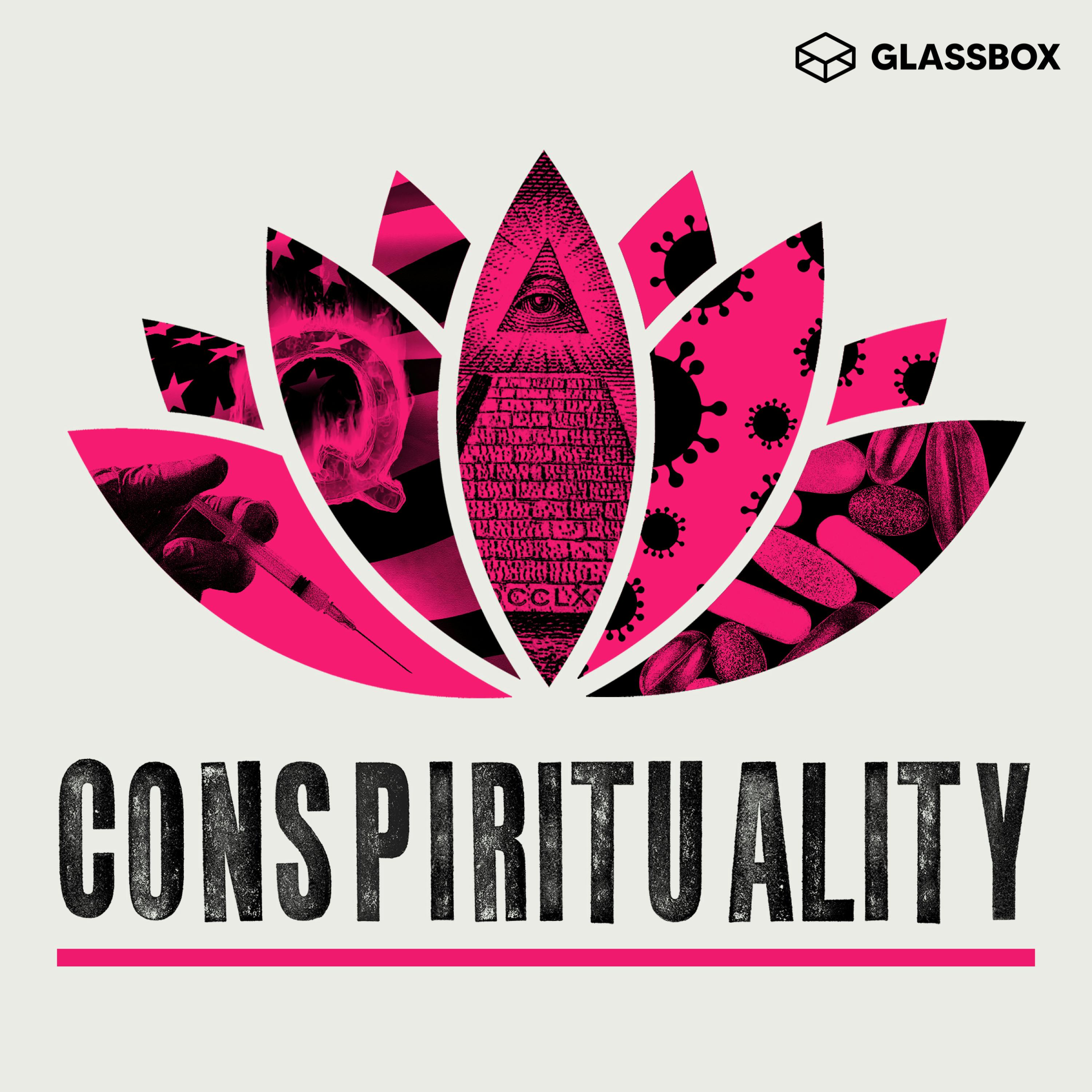
Conspirituality
Derek Beres, Matthew Remski, Julian Walker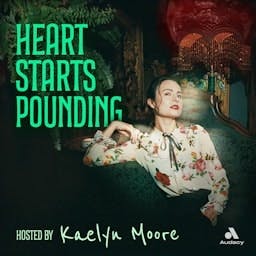
Heart Starts Pounding: Horrors, Hauntings and Mysteries
Heart Starts Pounding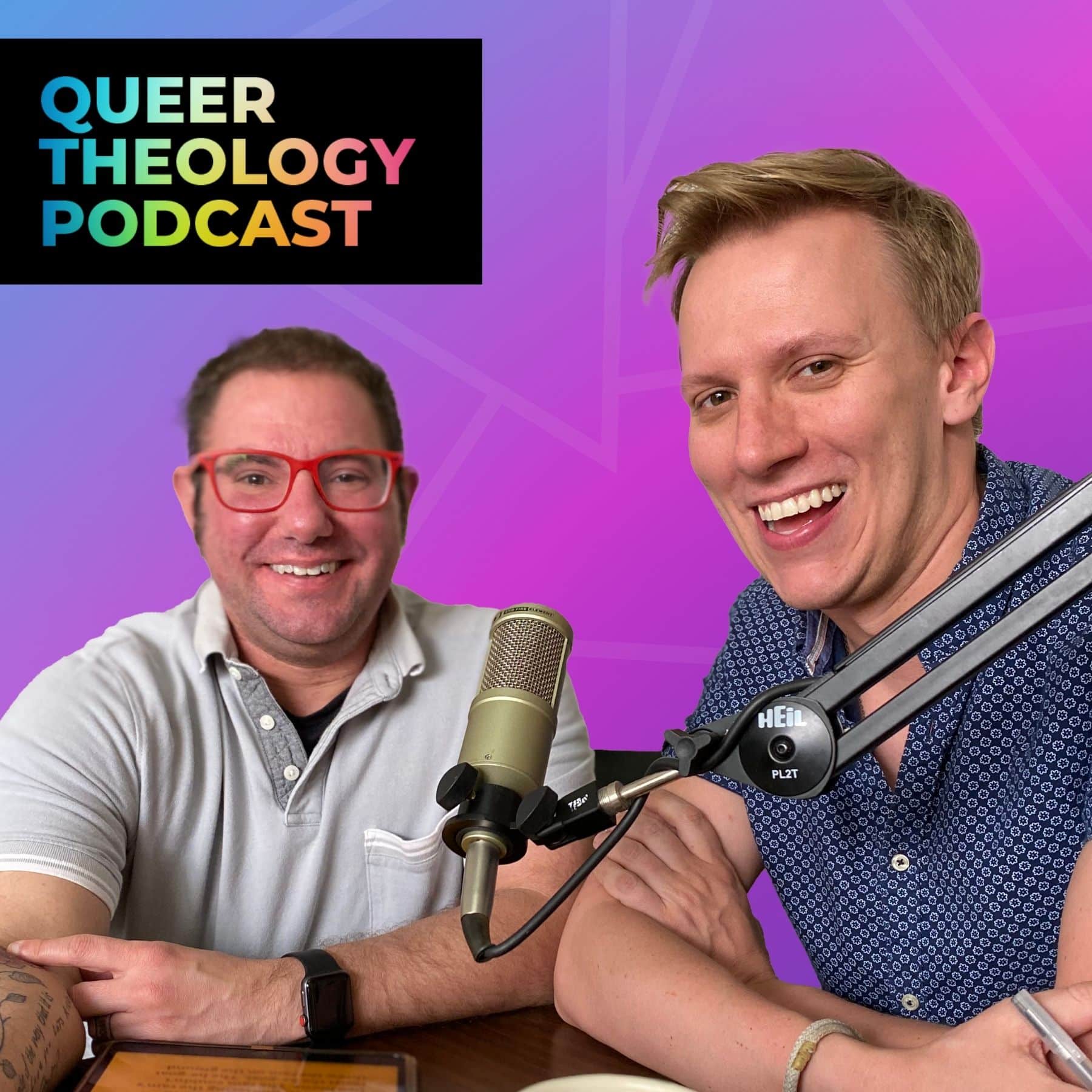
Queer Theology
Queer Theology / Brian G. Murphy & Shannon T.L. Kearns
Throughline
NPR
Code Switch
NPR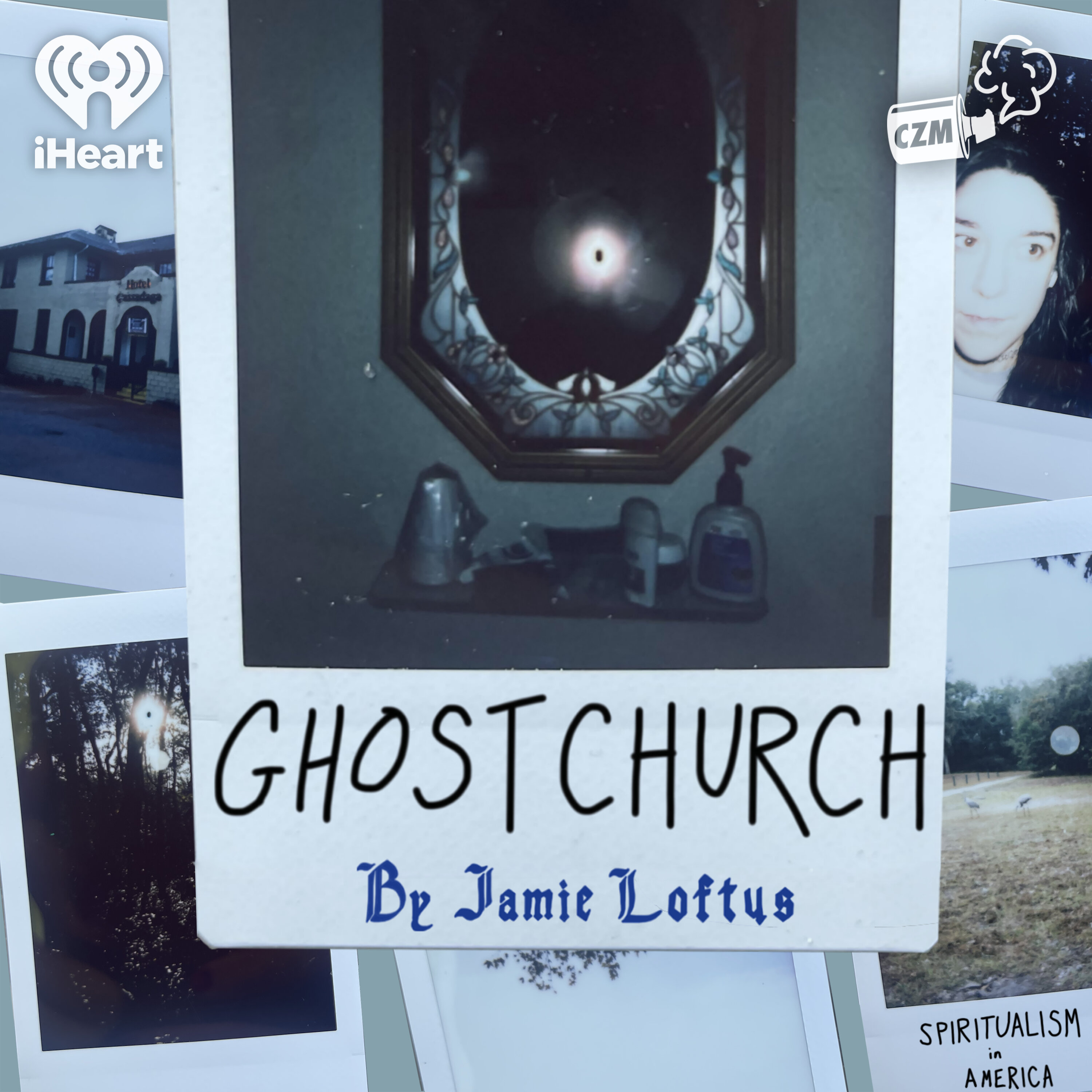
Ghost Church by Jamie Loftus
Cool Zone Media and iHeartPodcasts
Trade Offs
Fidelity International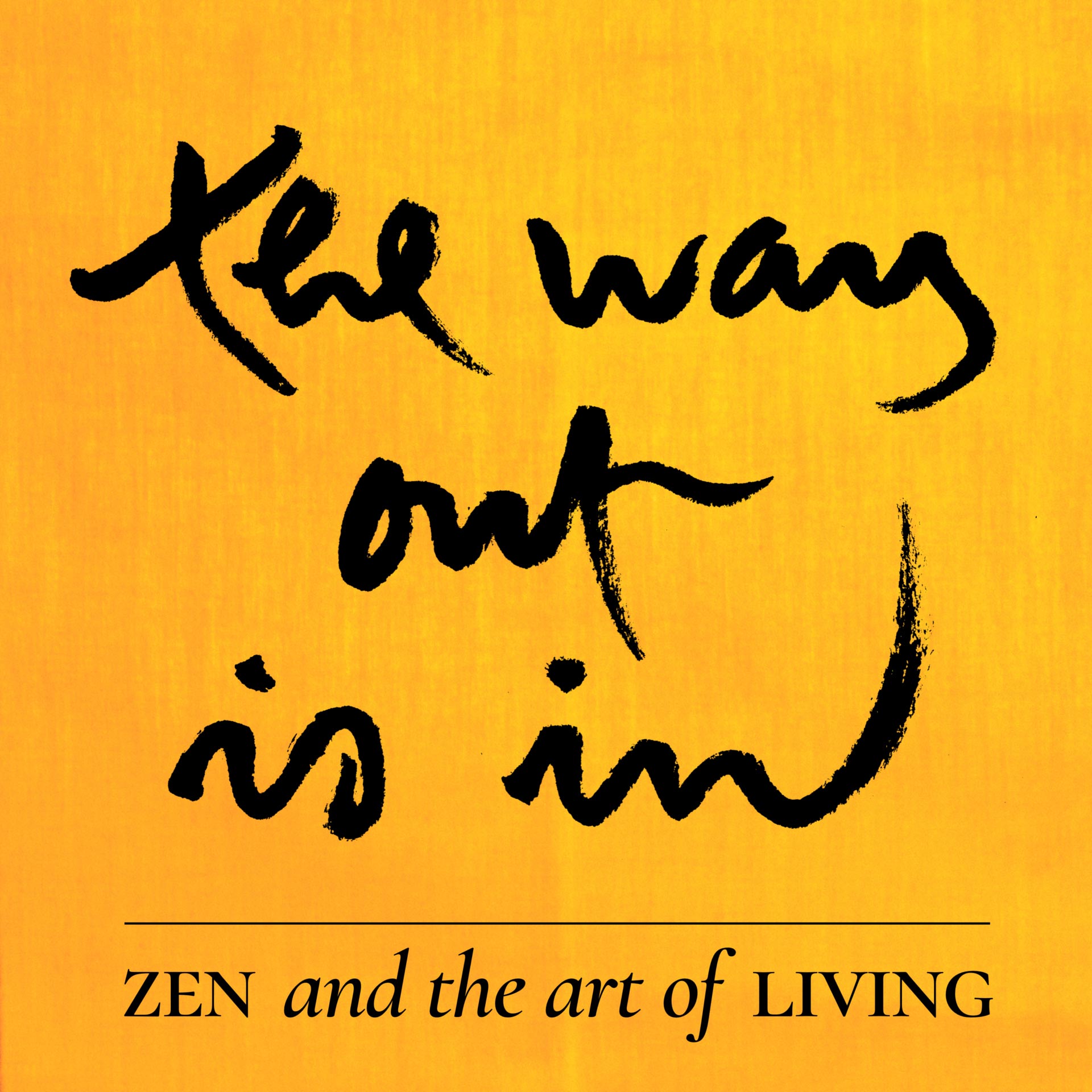
The Way Out Is In
Plum Village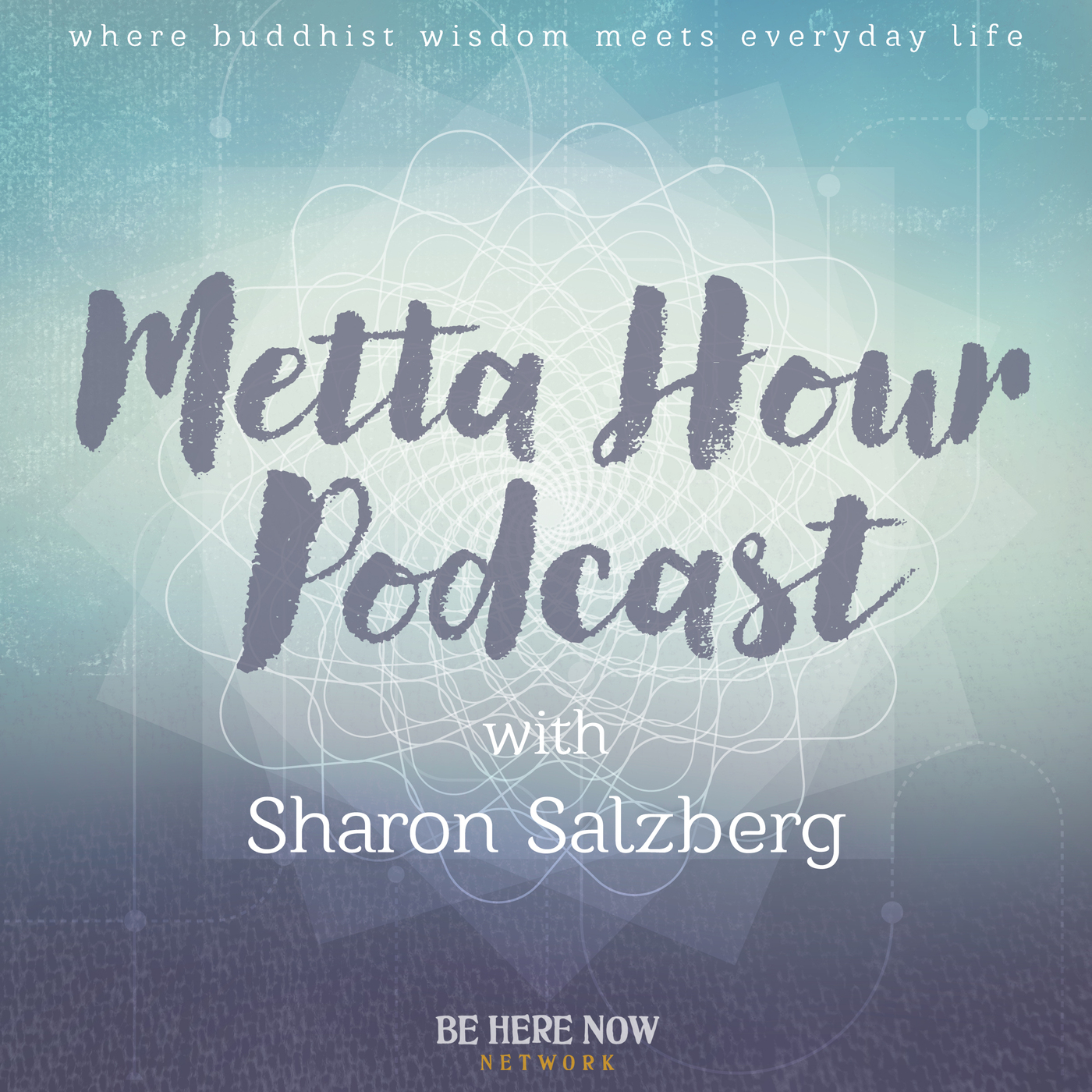
Metta Hour with Sharon Salzberg
Be Here Now Network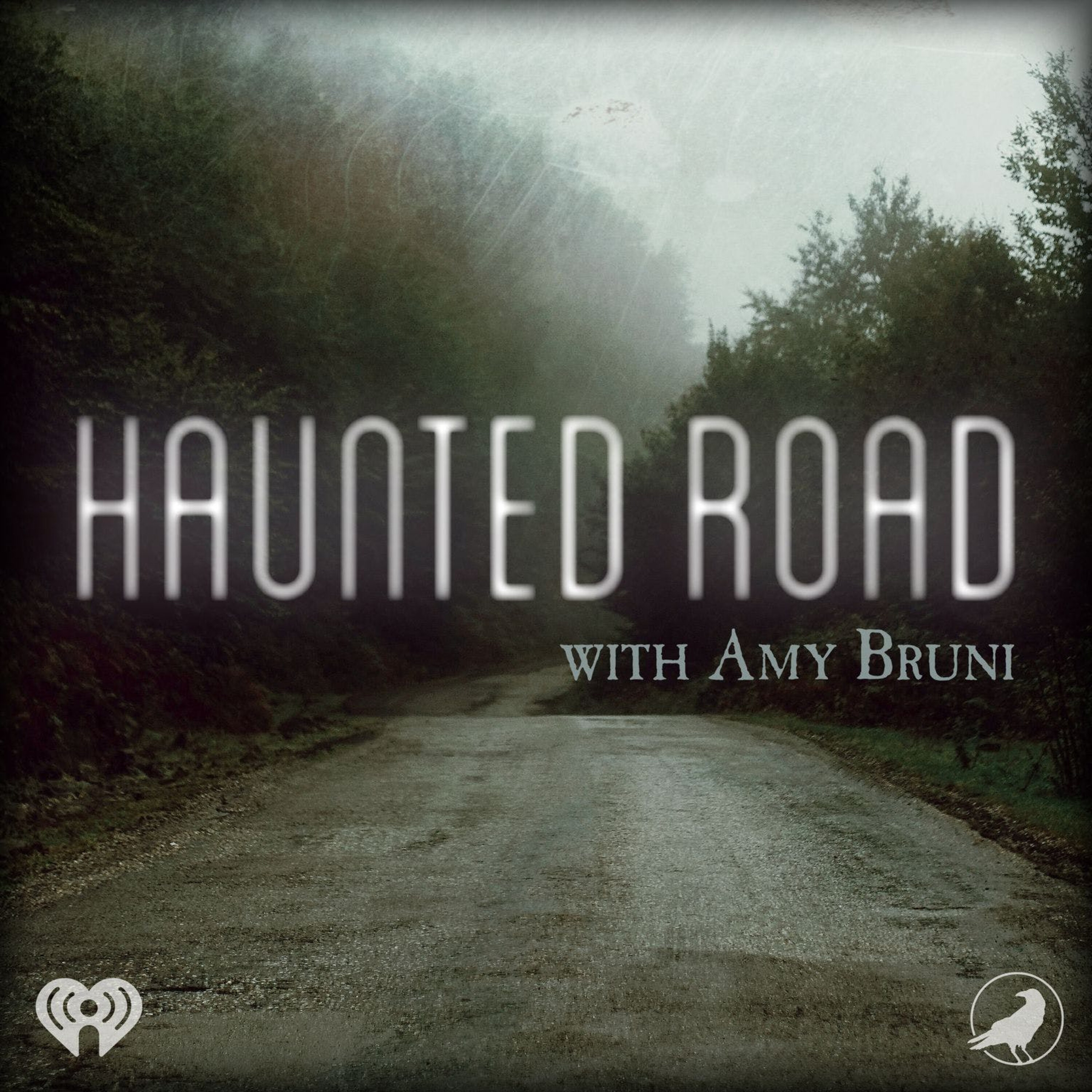
Haunted Road
iHeartPodcasts and Grim & Mild
